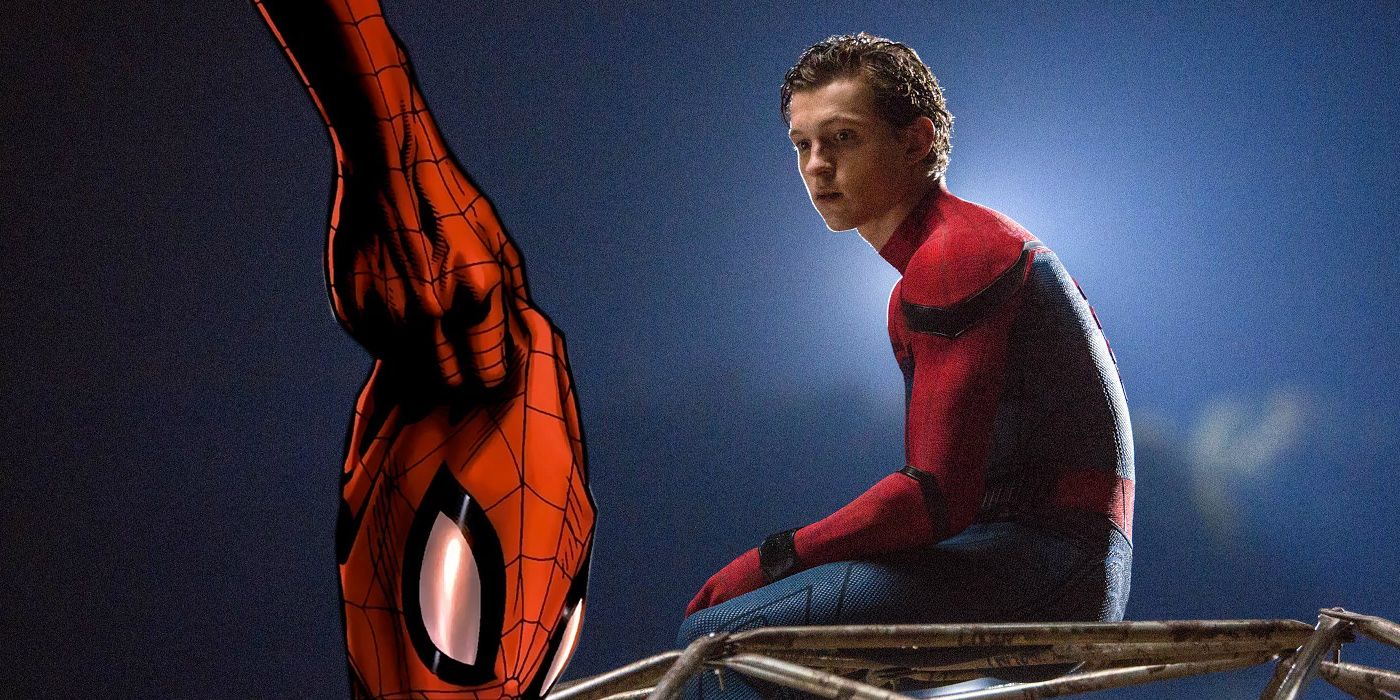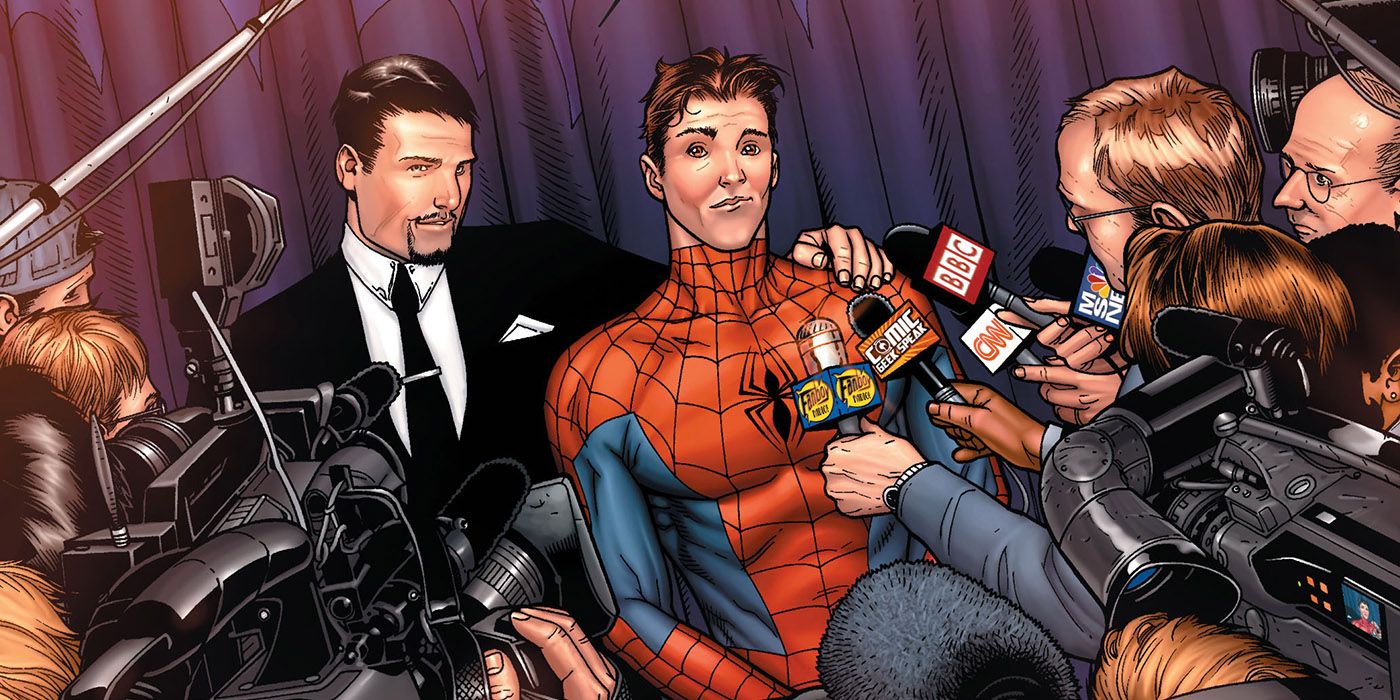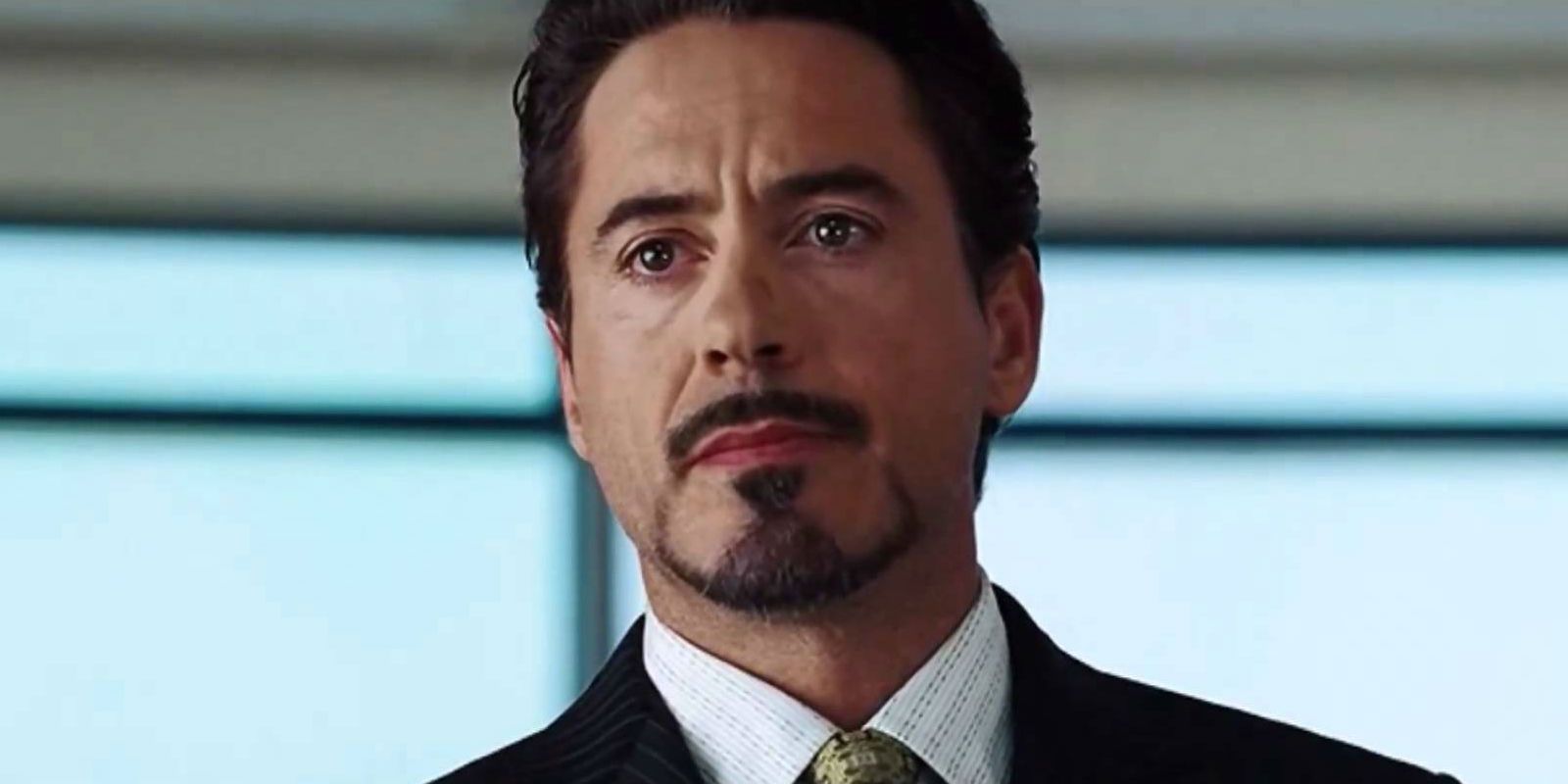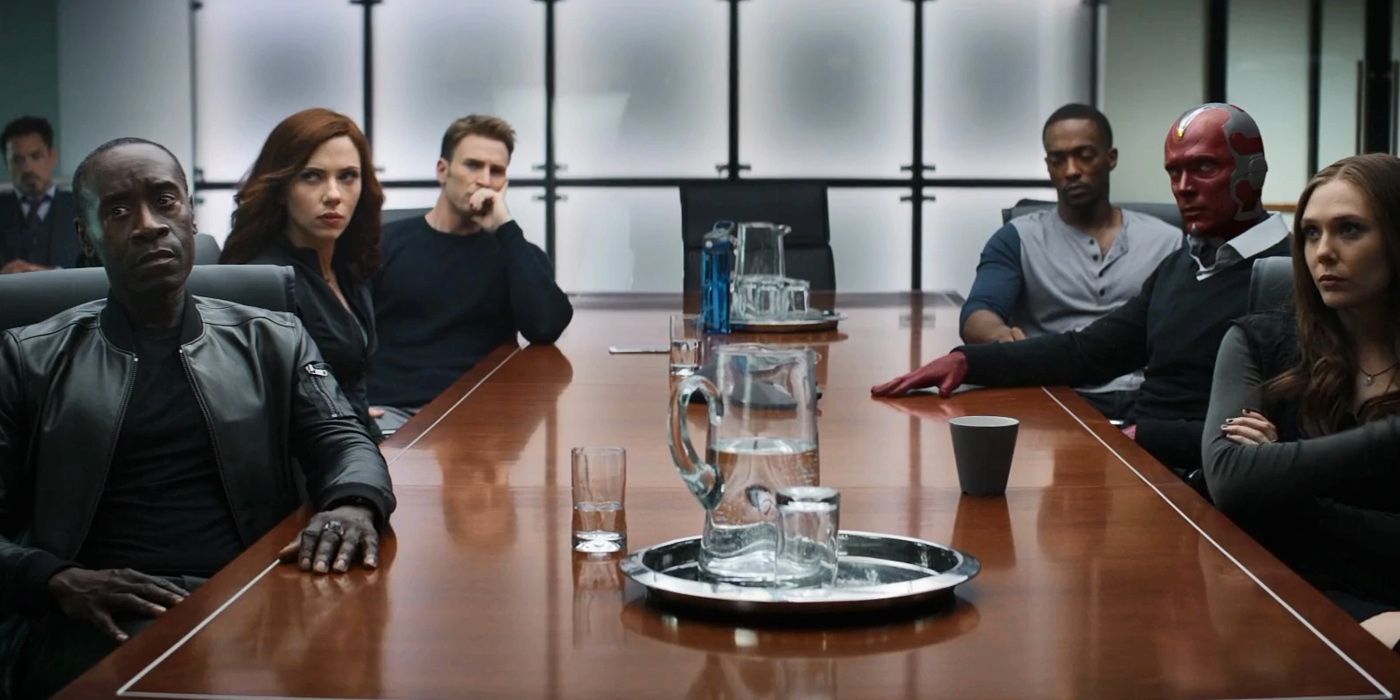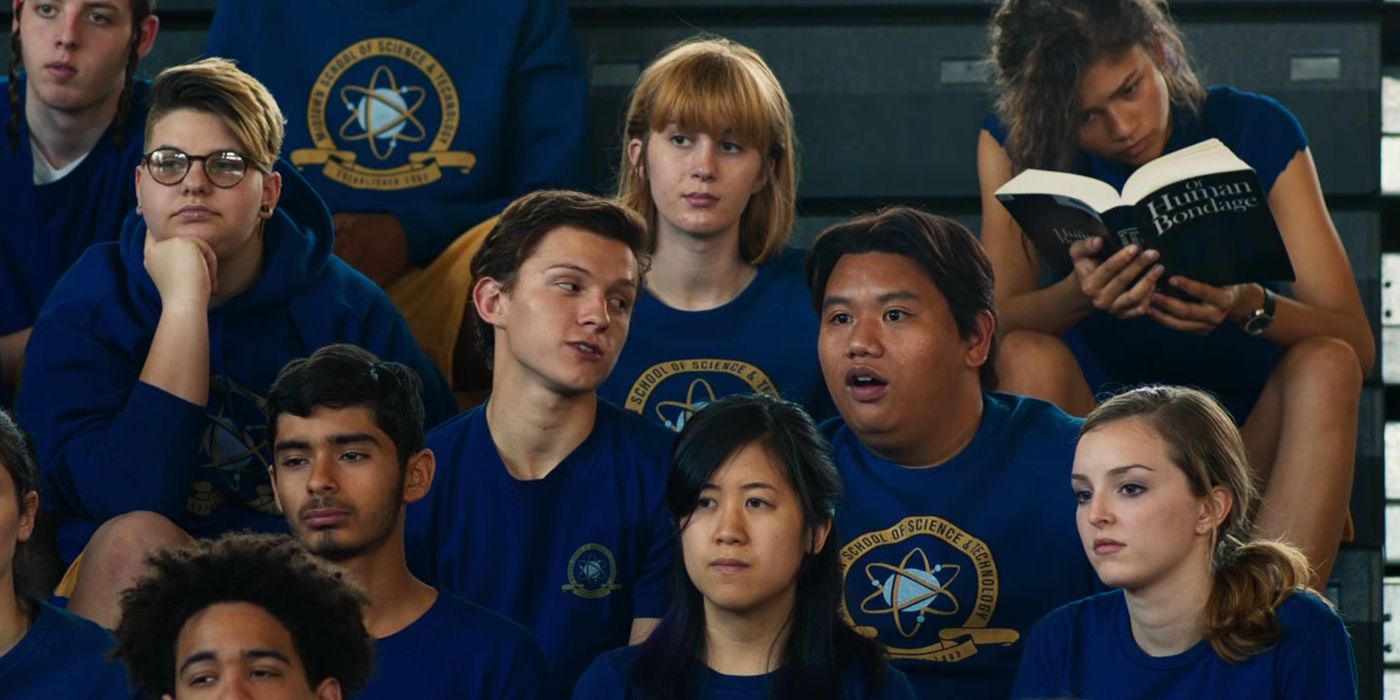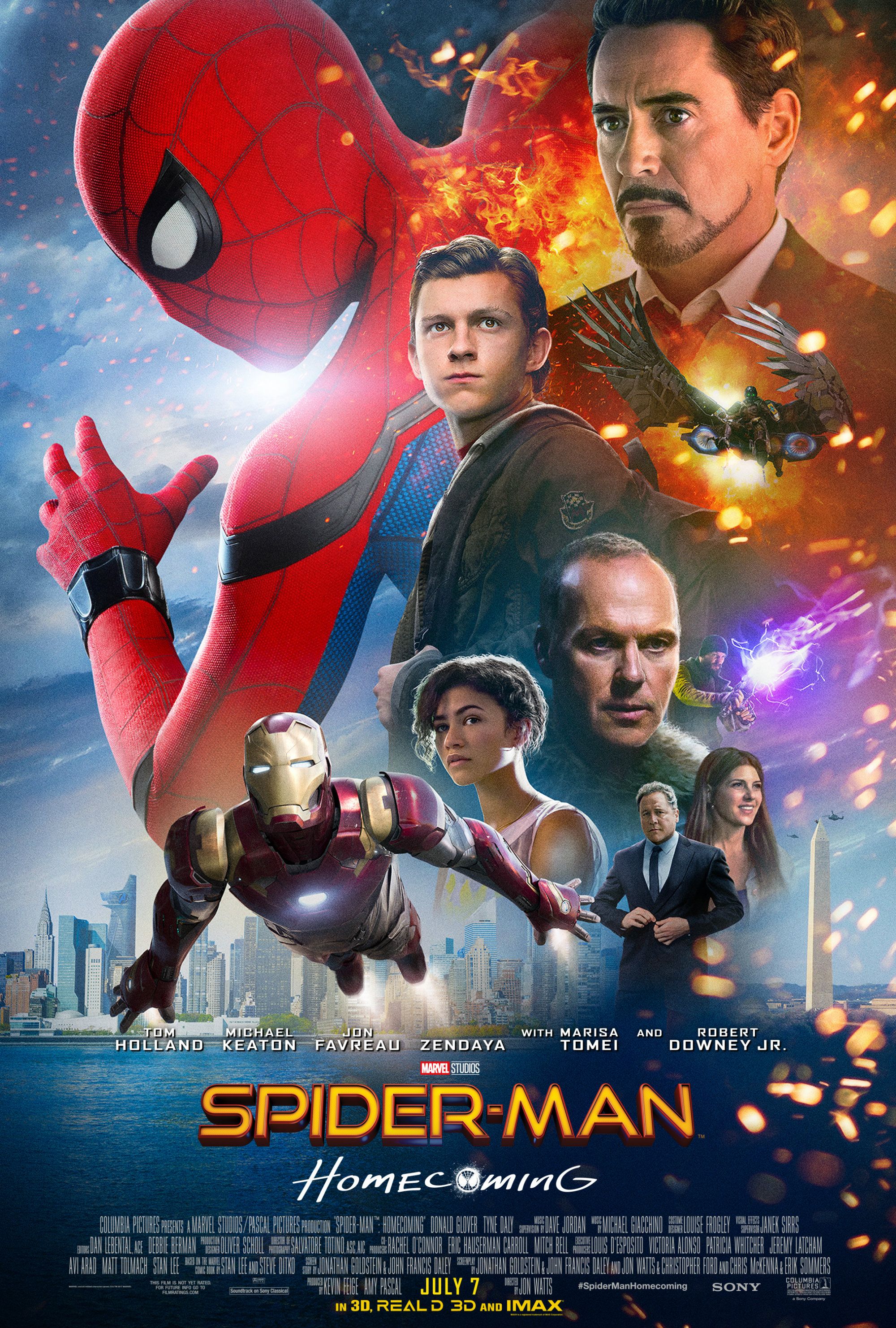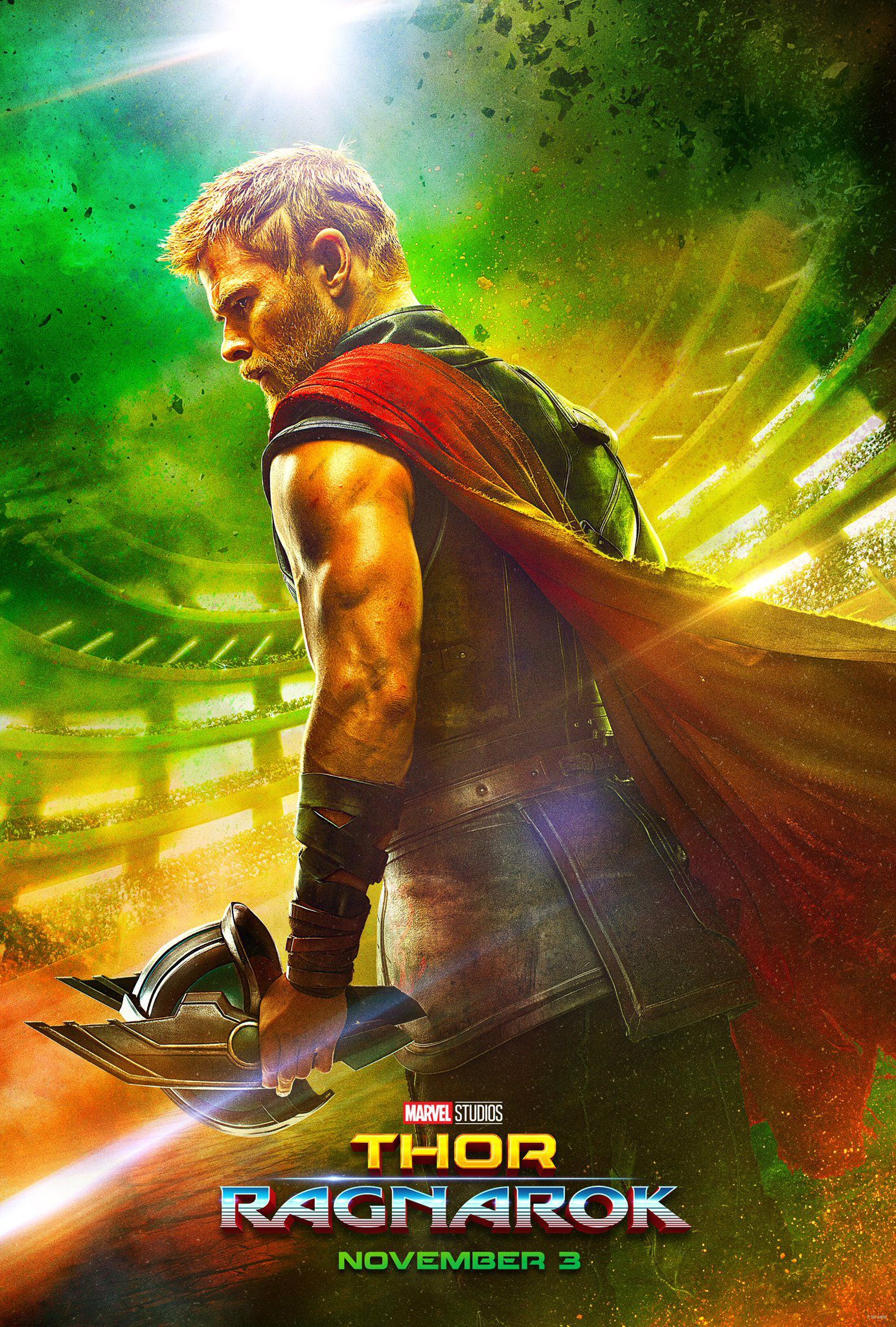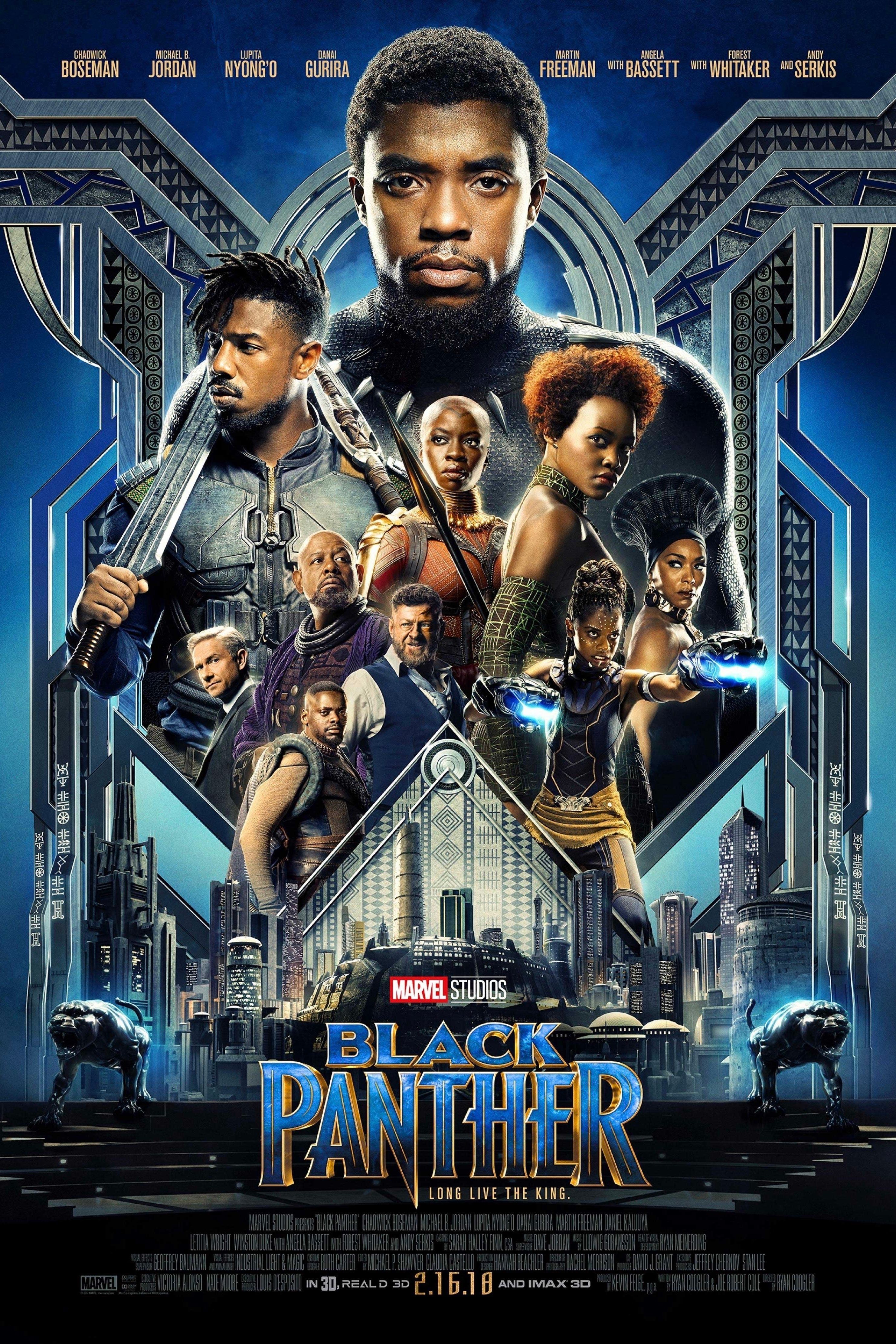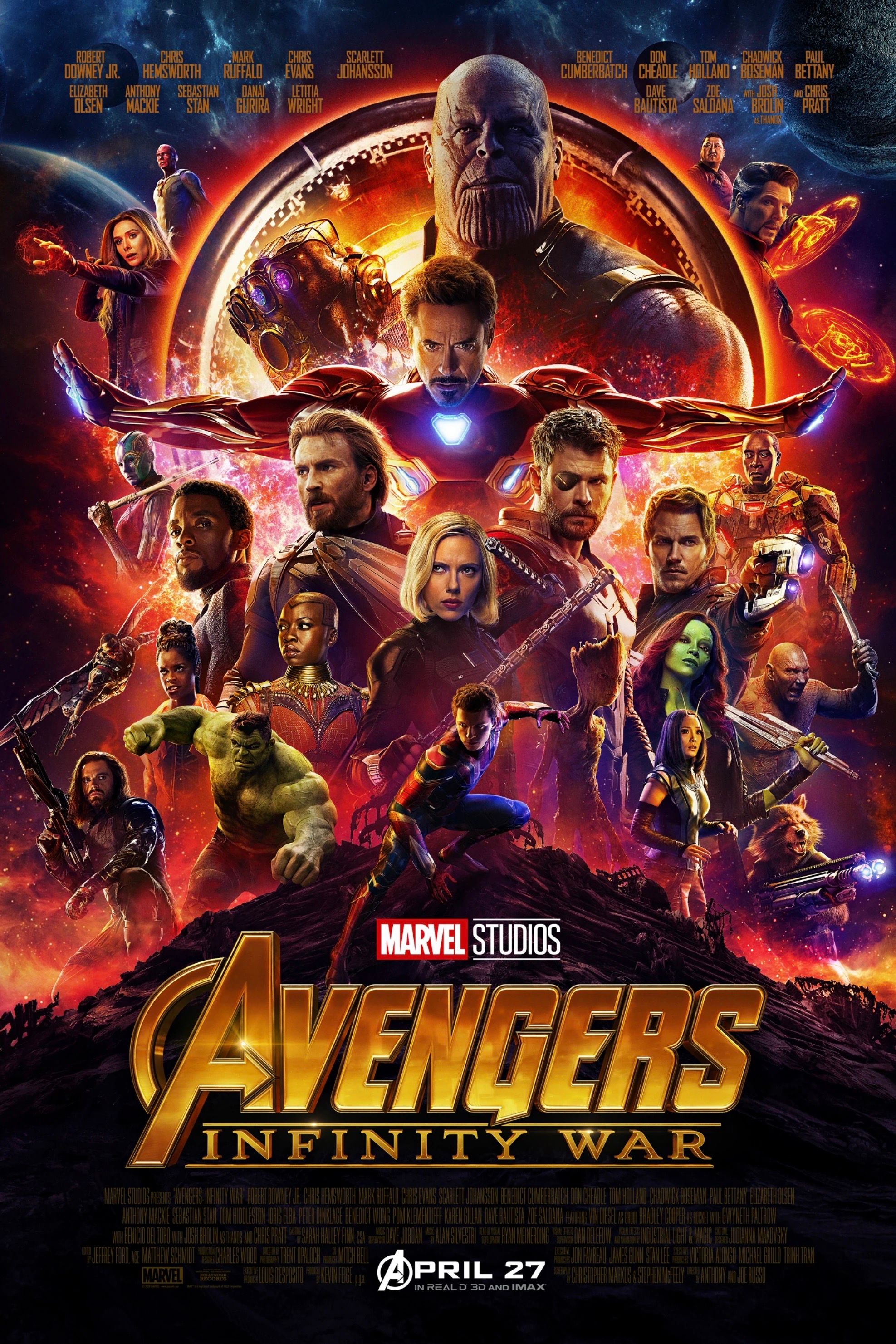Spider-Man: Homecoming marks the character's solo entrance into the MCU, but it also has to contest with the fact it's the third iteration of the character on the big screen in a decade. As such, there's been a lot of changes made to the character, both in reference to the Tobey Maguire and Andrew Garfield versions, but also the core comics.
A lot has been made about how Jon Watts has ditched Peter Parker's Spidey sense (or, rather, seriously played it down), but that's small fry next to his other adjustments. While they still happened in this world, the instigating Spider-bite, discovery of powers, Uncle Ben's death and "with great power comes great responsibility" are only oh-so-briefly alluded to (and hot Aunt May is a very different beast to what audiences have grown accustomed to). In place of that, you also a pervasive focus on the character's high school years, with an overt John Hughes style and an actor within the ballpark of school age (Holland is now 21, whereas Andrew Garfield was 29 when he first played the part). And, of course, this Spidey is in a universe full of heroes, with Iron Man his substitute father figure and joining the Avengers his primary goal.
For all those changes, however, they all endeavor to bring us closer to the core ideals that make up Spider-Man. They're oh-so-21st Century and fresh in reference to Maguire's organic web-slinger and Garfield's parent-mystery-obsessed faux-teenager, yet each of these feels like it's bringing us closer to the Peter Parker Stan Lee and Steve Ditko first dreamt up in 1962. Although, while having him a fully-formed schoolkid-turned-superhero in a world of Miracles is certainly cool, none of these adjustments are the biggest change made.
That would be how he handles his secret identity.
The Importance Of Spider-Man's Secret Identity
Secret identities are an essential trope of the superhero, perhaps second only to the actual existence of superpowers. They ground the fantastical in our world, showing the humanity behind the icon and allow the reader or viewer to directly relate to what's happening in the panel or on the screen. And all of this is particularly true of Spider-Man, who's had it be the essential facet of his character since his very first issue.
In Amazing Fantasy #15, Parker first started wearing a mask to save face if he failed at becoming a wrestler - his first move when getting powers was to make money - and the suit was later developed as a form of showmanship. In The Amazing Spider-Man #1, this extends into a desire to protect those close to him, first when trying to make money for Aunt May, then when J. Jonah Jameson starts slandering him across the press, and finalized when a price is put on his head. From that second issue on, Spidey protecting his identity for the benefit of those around him was his greatest sacrifice. Various friends and villains would discover it at points and he'd later unmask to the world in the Civil War crossover event (although that was later undone through a deal with the devil - don't ask), but it was and always has been a key trait of the character.
It's not just a legacy concern, though, but something at the center of Spidey's theme. As conceived, Spider-Man was meant to be a different sort of hero - a real person who got superpowers - and his best stories have always reflected that. You come for the brightly-spandexed hero swinging through New York on the cover, but stay for the man underneath the mask. A big part of this was how Peter was closer in age to the comic readers and regarded superheroes with a similar wide-eyed wonder - two of Homecoming's excellent already-discussed additions to the movie canon - but the fact he had to actively balance real life and superheroics made him such a likeable, empathetic presence and powered key conflicts like The Night Gwen Stacey Died and Kraven's Last Hunt. Even the maligned Clone Saga hinged on the question of identity.
Homecoming doesn't completely do away with this - that would be sacrilege - but it does change the motivations behind the alter ego and how stringently Peter regards his relationship with Spider-Man. His main purpose for hiding his identity from May is a fear she'll stop him having fun, and once Ned finds out it's treated with a complete casuality as Peter discovers how cool it makes him.
Although it's really just the latest step in something the MCU's been chipping away at from the very start.
Next Page: [valnet-url-page page=2 paginated=0 text='The%20MCU%27s%20Subversion%20Of%20Secret%20Identities']
The MCU's Subversion Of Secret Identities
Iron Man lay the blueprint for the MCU, perfecting the franchise's formula and lightly teasing the Avenger Initiative, although perhaps its biggest impact was in the complete disregard of secret identities. The film ended with Tony Stark openly proclaiming "I am Iron Man". Now, he had been outed by this point in the comics, but for the better part of four decades Stark and Iron Man had been publically separate figures (the official line was that Shellhead was Tony's robot bodyguard, the same excuse the movie version discarded). In movies, where keeping the mask on was a baked-in tradition, it marked Marvel Studios as trend-breakers.
Oh yes, this didn't stop there. Across Phase 1 the notion of The Avengers ever hiding their alter egos was wiped away; everyone knew Bruce Banner was Hulk, Thor only used Donald Blake - his Earth moniker - as a made-up alias in one scene, and Steve Rogers was synonymous Captain America long before he was even a superhero. The same became true of supporting characters - War Machine in Iron Man 2 and 3, Hawkeye and Black Widow in The Avengers - and any newly introduced hero. By the time we got to Civil War, in print a story all about secret identities, pretty much every character's true name was known - literally the only exception was Spider-Man himself - leading to a shift into collateral damage exploration.
Now, pure adaptation of the Avengers-splitting arc aside, this was a very strong move. Whereas most films in the superhero boom thus far (except for the X-Men) had been hampered by this consideration, ditching secret identities allowed the MCU to tell more interesting, hero-specific stories that could go in different directions to their contemporaries without much shorthand (Kevin Feige has said as much recently). It also had the very advantageous impact of allowing the movies' stars to ditch their masks and show off their highly-marketable faces without ever raising questions of revealing their identity. When you're aiming to make multiple movies a year, the freedom this allows is essential. These are heroes who live the lives of heroes.
There are, of course, some drawbacks to this. Secret identities are a key way of bridging the personal and the large, and typically that's meant exploration of the personal lives of the heroes have taken a knock. Look at how Marvel's struggled with believable love interests - that's in part because when you take away the internal conflict of protecting them you either turn them into doting worriers or far-too-aware damsels. It's also now got to the point where not having a hidden life has become as trite and restrictive as having one was ten years prior; you lose some of that nuance.
Regardless, it's had a major impact on the genre. The DCEU maintains secret identities and yet can't help but have them widely known. In Batman v Superman, Lex Luthor discovers Bruce Wayne is Batman and it's taken completely straight and as expected, with no consideration for how seismic an in-universe turn it really is.
Homecoming comes into this landscape with a character who explicitly can't be open about his identity (the Civil War unmasking was undone a couple of years later), and this leads to something very exciting.
Next Page: [valnet-url-page page=3 paginated=0 text='How%20Spider-Man%3A%20Homecoming%20Changes%20The%20Secret%20Identity%20Situation']
How Spider-Man: Homecoming Changes The Identity Situation
In Captain America: Civil War, Peter says to Tony Stark that Aunt May doesn't know because "if she knew she would freak out, and when she freaks out I freak out". In Homecoming we get an extension of this when Peter discusses his secret with Ned; he's keeping May out of it to save her any more upset from the unspoken death of Uncle Ben, but more pertinently because he fears that if she did know he'd be banned from superheroics.
There's a conflict of reasoning there, both of which take a step from the Spider-Man we're used to. Peter becomes Spider-Man out of a noble sense of duty - "When you can do the things that I can, but you don't and then the bad things happen, they happen because of you" - but the protection the mask provides for others is emotional and driven by a desire to ultimately protect himself. The way he sees it, the worst thing with Spider-Man is May finding out as it'll cause to end his stint. He's not concerned about her becoming a target of villains (until Vulture directly threatens her - in a scene about his own well-kept identity, no less), instead selfishly focusing on his own enjoyment (he does care for her, but it's a very immature sense).
It's a step away from Raimi and Webb eras, although within this you have marks of the various reasons Spidey's been a secret in the comics - to avoid the embarrassment of being different, to protect others - but it's imbued with a new, arguably selfish angle that highlights his juvinality.
Ned is very important to this as he allows Peter to show-off and develop his excitement and frustrations; he delights in bragging about stealing Cap's shield and basically being an Avenger, then twists it around when he gets frustrated being constantly talked down to (his correction of age to Tony Stark after the ferry incident may be the most astute observation in the entire film). This makes the character's Homecoming arc so fresh and faithful. His grappling with identity is the MCU's way of having Peter learn "with great power comes great responsibility", a journey here framed through him believing he "needs" the advanced Stark suit and a desperation to join The Avengers. It's a teenage outlook on life being applied to the MCU.
And we do evolve, even if it's forcefully; the movie ends with May walking in on an unmasked Spider-Man. This is something we haven't seen before - in the comics, a dying May admitted she always knew of Peter's dual life, but she never discovered in a shocking way - and completely shakes up the dynamic here. The real fear that created Spider-Man has been realized. How this will impact Infinity War, in which Marissa Tomei won't appear, is unclear, but it's sure to be a key factor in Homecoming 2. However, it's worth noting that while this is where the MCU diverges from convention explicitly - it's Spidey's "I am Iron Man" - they've already been establishing subtle variations.
What we appear to have is a constant evolution of Peter Parker's relationship with Spider-Man across his MCU appearances. Kevin Feige has stated they have a five-movie story mapped out for the character and the secret identity adjustments are at the core of that; at first his alter ego choice is noble, then it's personal, and with Homecoming's final shot that change needs to be addressed. Speculating post-Avengers 4 is foolhardy, but we'd stake that in that film we'll see Peter become the Spider-Man in its entirity.
-
This is the most remarkable change as it would have been the easiest thing to keep the same, but instead Jon Watts and his team went above and beyond to really question who Peter Parker is and why he does what he does in a way that integrates Spider-Man into the MCU perhaps more perfectly than they even realized. Top of the class.

